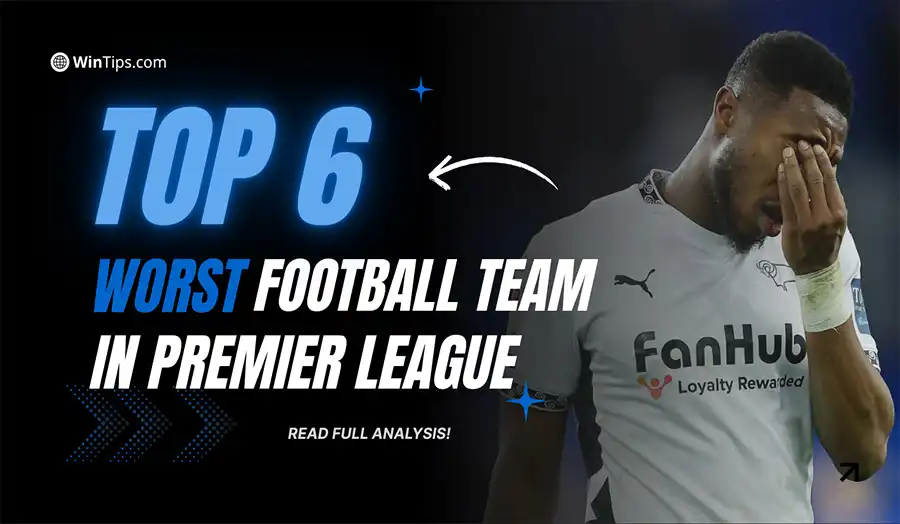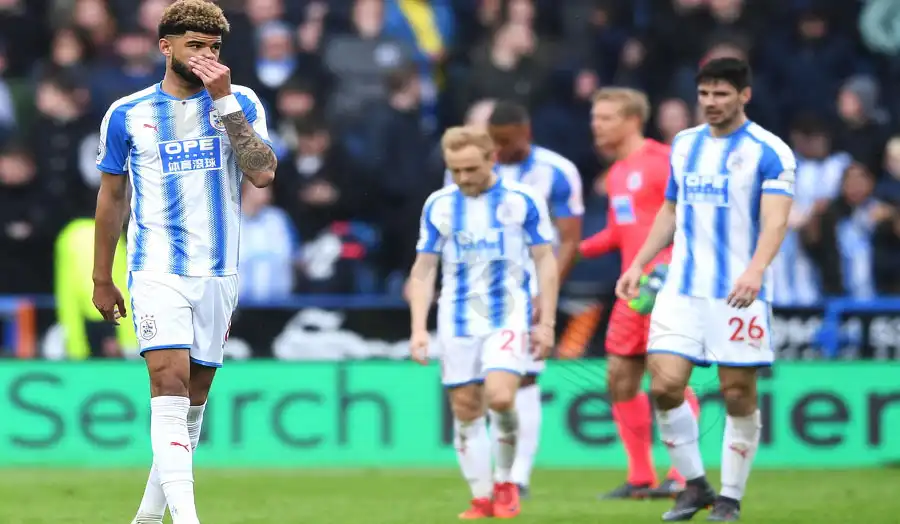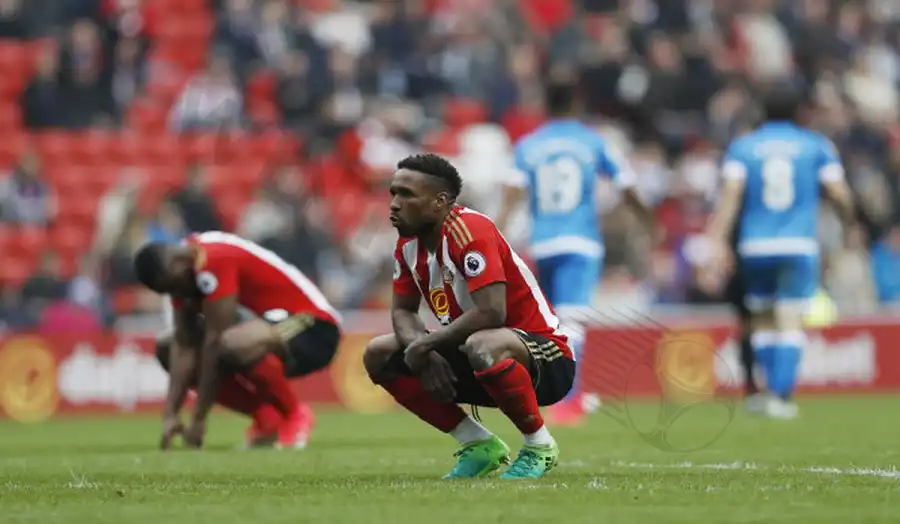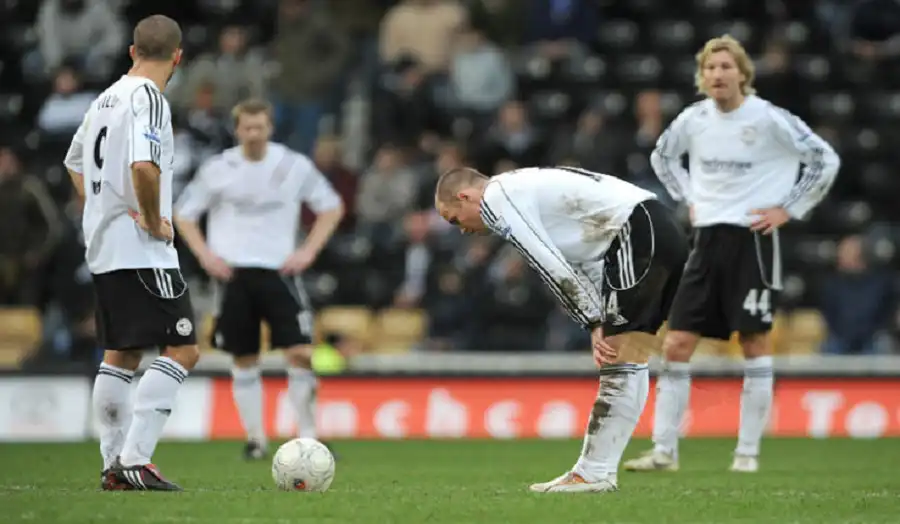In every Premier League season, people often focus on the championship race, on beautiful goals or the performances of big stars. But on the other hand, at the bottom of the rankings, there is another world - more gloomy, but for bettors, full of profit potential. There are teams that enter the season with hope, but then quickly fall into free fall due to predictable mistakes: weak squad, poor tactics, weak mentality. And the interesting thing is, if you observe carefully, you can completely recognize them very early. Below Wintips shares the top worst football team in the Premier League and the valuable lessons they leave for bettors.

Top 6 worst football team in the Premier League
Not every team can shine in the most fierce playground in England - the Premier League. In that journey, there are many clubs that have left their mark not by resounding victories, but by incredibly poor achievements. Let's take a look at the top 6 worst football team Premier League.
6. Norwich City (multiple seasons)
Norwich is famously known as a “yo-yo club” – often earning promotion only to be relegated again the following season. In 2021–22, they secured 22 points; before that, in 2019–20, they ended with 21 points. This club is a prime example of cyclical betting opportunities: upon promotion, you can bet on relegation; early in the season, you can bet on low-scoring matches; and against stronger teams, the “trailing at halftime” bet becomes viable. Norwich often excels in the Championship but lacks the quality and composure to compete in the Premier League. Every time they are promoted, bettors can confidently place early bets such as “first team relegated” or “lowest goal difference.”

Moreover, Norwich plays a style focused on possession but lacks finishing efficiency – making them ideal for under bets or narrow-loss markets. In many matches, they controlled over 55% of the ball but failed to score. If you review statistics before the season begins, you can detect the “illusion” in Norwich’s playing style creating chances without being clinical. This case demonstrates the power of deep statistical analysis (such as xG, shot counts, possession rates) in helping bettors place winning bets before the market adjusts to a team’s true capabilities.
5. Sheffield United (2020–21)
Following an impressive 9th place finish in 2019–20, Sheffield United crashed the following season with only 23 points and 20 goals scored across the entire campaign. Many people continued to believe in the “phenomenon” from the year before and placed bets in favor of Sheffield, but this turned out to be a mistake. The team quickly showed they had lost their fighting spirit and tactical unpredictability. For bettors, this was an opportunity to profit from bets such as “away losses,” “low total goals,” or “losing by one goal” – because while Sheffield United still played with effort, they were simply ineffective.

Most importantly, this was a vivid example of how false hope from a previously successful season can mislead bettors. One must learn to detach emotions when betting: just because a team performed well last year does not mean they will repeat that performance. Bookmakers often exploit this by offering attractive odds that tempt people to trust outdated success. If you stay clear-headed and assess a team’s current form objectively, the 2020–21 Sheffield United squad was a textbook case for betting according to a “decline cycle” strategy.
4. Huddersfield Town (2018–19)
After a surprising survival in their first Premier League season (2017–18), Huddersfield came crashing back to earth the following season, finishing with only 16 points. They scored just 22 goals in 38 matches – an average of less than 0.6 goals per game. For bettors, this was a jackpot for under-market wagers, especially in matches against mid-table or lower-ranked teams. Huddersfield was not a team that got demolished like Derby, but rather a team with “no resistance” – they could not finish, could not create chances, and had virtually no ability to come from behind. They were the perfect profile for bets like “team to fail to score” or “losing with a low margin.”

Especially for those who prefer long-term betting markets, Huddersfield exemplified opportunities such as “worst attacking team,” “fewest wins,” or “earliest relegated team.” This club illustrated one key point: even a team that manages to survive one season will collapse if they fail to deepen their squad or lose a quality manager. In long-term betting, watching for a drop in form from the previous season can help bettors place smart, early bets at favorable odds.
Visit betting site Australia for free and get amazing free bet rewards.
3. Aston Villa (2015–16)
In the 2015–16 season, Aston Villa – a former European champion shocked the football world by securing only 17 points and suffering a humiliating relegation. This proves that even clubs with deep-rooted traditions can spiral into decline if they fail to invest properly. For bettors, Villa that season was a “gold mine” for markets such as “team fails to score in multiple consecutive matches,” or “no first-half goals.” Their attack was disjointed, lacked cohesion, and their mentality on the pitch was weak. From the early stages of the season, it was evident in many matches that Villa would concede early and give up a great opportunity for bets such as “losing both halves.”

Additionally, savvy bettors profited by closely watching matches where Aston Villa faced other weak teams, choosing draw markets or low-goal (under) bets. With their inability to capitalize on home advantage, Villa in 2015–16 was a prime example of a “big-name but weak-value” team ideal for implementing reverse-market strategies. The message for bettors is clear: do not be deceived by legacy or past glory always assess performance, mindset, and actual investment.
2. Sunderland (2002–03 & 2005–06)
Sunderland experienced two complete collapses within just three seasons. In the 2002–03 campaign, they ended with 19 points, and by the 2005–06 season, they performed even worse, with only 15 points. The fact that a club with a competitive history could repeat such failures within a short timeframe is crucial information for bettors. This is a vital lesson for long-term players: analyze the strategic depth of a club’s development, consider long term form, and pay close attention to repeated patterns of failure. When a club consistently changes managers, lacks deep investment, and fails to improve their playing style, it is a strong signal to bet on “relegation” or “total goals conceded” markets over the course of the season.

In particular, during those two seasons, Sunderland often had surprisingly high odds due to a segment of bettors still placing their faith in the club’s “history” or “name value.” This misplaced expectation favored the bookmakers. Smart bettors capitalized on this market psychology by betting in the opposite direction – examples include wagers such as “over 25 losses” or “under 30 goals in a season.” Sunderland is a clear illustration that reputation does not equate to performance, and when a club appears lethargic and directionless, that is the moment to bet on disaster.
1. Derby County (2007–08)
The 2007–08 season of Derby County serves as a classic example for bettors to learn how to identify early signs of a team that may collapse completely over the course of a season. Prior to the season, Derby had just been promoted through the play-offs. The squad was thin, lacked experience, and operated under a limited budget in the transfer market. Just a few rounds into the season, the signs of decline were already evident: a harmless attack, a fragile defense, and a one-dimensional tactical approach. Observant bettors at the time could have begun placing special bets such as “early relegation,” “lowest scoring team of the season,” or “most losses in a season” all of which hit with Derby. The key lesson here is clear: a newly promoted team with little investment equals a high risk of relegation.

Not only did Derby finish with the lowest points total in history (11 points), but they were also relegated earlier than any other team – by Matchweek 32. For season-long bettors, wagers like “under 20 points,” “fewer than 3 wins,” or “negative goal difference greater than 50” were all easily profitable. Derby became the textbook example of a team that, while not strong, was a “goldmine” for negative betting markets. Since then, every season that featured a weak newly promoted side, bookmakers and experienced bettors alike would compare them to Derby 2007–08. The takeaway is simple: do not only place bets on the strongest teams sometimes, betting on the worst team can be the most lucrative strategy.
In Summary
When a team performs poorly throughout the season, they not only fail on the pitch but also become the focus of effective betting strategies. Bettors who are sober enough to look at the actual statistics rather than the illusions based on the past are often the ones who make the most from special bets: relegation, losing streak, poor goal difference, low goals scored, etc. There is no room for daydreaming in modern football; and the same goes for betting. History has shown that sometimes “buying the bottom” is the best way to get to the top. Correctly identifying a weak worst football team in the premier league early in the season can be the key to a long-term winning streak.
See also: List of top 7 top form football teams in the world







